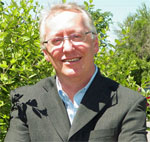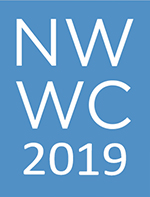 |
||||||||||||||||
| Subscribe | Past Issues | www.cwwa.ca | Water Source Magazine | ||||||||||||||||
|
CWWA News
Well that was certainly an interesting election…from a blood sport aspect…but maybe not that interesting from a policy discussion standpoint. The Climate Crisis was certainly the highest ranking issue, but never got too specific. There was some discussion of First Nations and the need to continue efforts to eliminate boil water orders. Then there was a very brief moment with some suggestions for banning any sewage dumping - we were called for comment, but the interview never ran as it had disappeared as an issue by the next day.
For 2020 CWWA is joining with the Water Summit to expand the Window on Ottawa - we'll still be offering the same great presentations from the federal government on policies and legislation impacting the water and wastewater sector but with an expanded focus on more aspects of water management and stewardship. More details are coming in the new year, but in the meantime save the date - June 10-12, 2020.
Federal Initiatives
A new National Wildlife Federation report in the US is calling on lawmakers to step up water protection against contamination from the large group of toxic synthetic chemicals known as Perand Polyfluoroalkyl Substances, or PFAS. On September 25, 2019, CSA Group posted an updated version of CSA PLUS 4013:19 - Technical guide: Development, interpretation and use of rainfall intensity-duration-frequency (IDF) information: Guideline for Canadian water resources practitioners. Research now indicates that climate change will likely result in an increase in the intensity and frequency of extreme precipitation events in most regions in the future. As a result, IDF values will optimally need to be updated more frequently than in the past and climate change scenarios might eventually be drawn upon in order to inform IDF calculations. This Standard addresses risks to infrastructure in the context of Canada’s North and climate change: weather data, climate variables, and relevant projections and forecasts; reducing risk of damage; climate adaptation strategies; and design construction techniques. The document is no longer available for public comment, but you may be able to access it by contacting CSA directly. Contact: ken.phu@csagroup.org Member News
WCWC is pleased to announce the appointment of Mike Smith as the Chair of the board of directors. Mr. Smith was formerly employed at Bruce Nuclear Power Development. He spent 23 years in Operations at the Bruce Heavy Water Plant and 16 years as a Senior Chemical Operator. After that position, Mr. Smith spent 10 years on site in the Nuclear Safety Training department developing and delivering safety training to plant personnel. In anticipation of the 3rd annual Smart 50 Awards, we invite you to submit municipal-scale projects by Friday, November 1, 2019. Smart 50 Awards, in partnership with Smart Cities Connect, Smart Cities Connect Foundation, and US Ignite, annually recognize global smart cities projects, honoring the most innovative and influential work. This year, primary categories included community engagement, digital transformation, smart mobility, urban infrastructure, and urban operations. Provincial News
Many BC municipalities are requiring higher levels of energy efficiency in new construction by applying the BC Energy Step Code, a recently introduced standard that encourages towns and cities to require their builders to exceed the minimum legal energy-efficiency requirements. The province is assessing three reservoir options to mitigate the impacts of both flood and drought on the Bow River. Information sessions are scheduled for fall 2019 to provide a project update and solicit input from the public. Snippings & Clippings
As mass climate strikes unfold globally, Toronto Mayor, John Tory, announced that the city will be joining 800 other governments around the world to declare a climate emergency. The declaration, which was adopted by city council on October 2, 2019, is one of more than 800 declarations made by local governments in 16 countries around the world to acknowledge the scale of the climate crisis. Other cities include: Amsterdam, Auckland, Barcelona, London, Los Angeles, Montréal, New York City, Paris, San Francisco, Sydney, and Vancouver. Water Canada Richer data can help improve the accuracy of flood hazard maps that are used by governments, insurers, and investors to determine the flood risk, according to a study by the Canadian Water Network (CWN) and Insurance Bureau of Canada (IBC). |
||||||||||||||||



